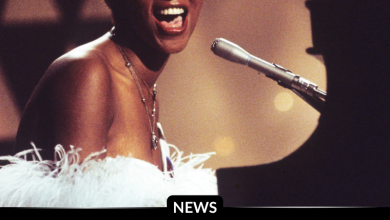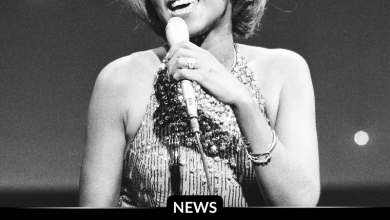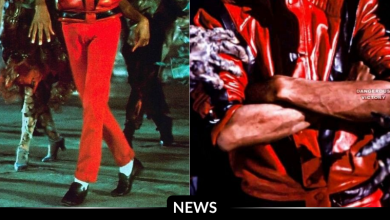Michael Bublé: How a Grandfather’s Love Led to a Global Jazz Journey
OPINION: This article may contain commentary which reflects the author's opinion.
Before he became one of the most recognizable voices in modern jazz, Michael Bublé was simply a young dreamer growing up in Burnaby, British Columbia. His love for music didn’t begin in a recording studio or on a grand stage — it began in the warmth of his grandfather’s home, surrounded by vinyl records and unwavering support.
“He’s the reason I became a singer,” Bublé has shared repeatedly. “Without him, I never would’ve discovered jazz — or the part of myself that came alive when I sang it.”
A Plumber with a Passion for Music
Bublé’s grandfather, Demetrio Santagà, wasn’t in the music business. He worked as a plumber — a modest profession, but he carried a deep appreciation for the legends of jazz. His collection of vinyl records featured icons like Frank Sinatra, Ella Fitzgerald, Tony Bennett, and Billie Holiday.
Those records became Bublé’s first teachers.
“We’d sit at the kitchen table, listening to ‘Come Fly With Me’ and ‘The Way You Look Tonight,’” Bublé recalled. “I didn’t know the technical side of singing yet — I just knew that something in those songs stirred something in me.”
A Grandfather’s Creative Sacrifice
Recognizing his grandson’s gift, Demetrio did more than just introduce him to jazz — he actively created opportunities for him. Unable to afford studio time or vocal coaching, he came up with an inventive solution: he traded his plumbing work for stage time.
“He literally traded labor so I could get on stage,” Bublé said. “He fixed toilets so I could sing in lounges. That’s love.”
Those performances in small clubs and local venues became Bublé’s foundation. They taught him more about stage presence and emotional connection than any formal training could.
From Local Stages to Global Success
With time, Bublé’s style evolved — blending the nostalgic charm of classic crooners with his own modern flair. Albums like It’s Time and Call Me Irresponsible propelled him into international stardom, earning him awards and acclaim. But at every milestone, he carried his grandfather’s influence with him.
“My grandfather didn’t live to see the big tours or the awards,” he said. “But every time I sing a standard, he’s there. Every note, every swing — that’s his spirit.”
In tribute, Bublé recorded emotional renditions of songs like “Song for You” and “You’ll Never Know,” dedicating them in spirit to the man who made his journey possible. “Those weren’t just songs,” he said. “They were thank-yous.”
More Than Music — A Lesson in Character
Beyond introducing him to jazz, Demetrio instilled values that Bublé still carries today. “He taught me that being a good man matters more than being a famous one,” Bublé reflected. “He showed me that music is about emotion, not ego — about making people feel.”
A Gift That Lasts a Lifetime
When asked why jazz remains at the heart of his music, Bublé’s answer is simple and heartfelt:
“Because it’s honest. It’s timeless. And because my grandfather gave it to me. That gift… that’s the reason I sing.”
Michael Bublé’s story is not just one of talent — it’s a testament to the power of encouragement, heritage, and the quiet sacrifices made by those who believe in us before the world does.



